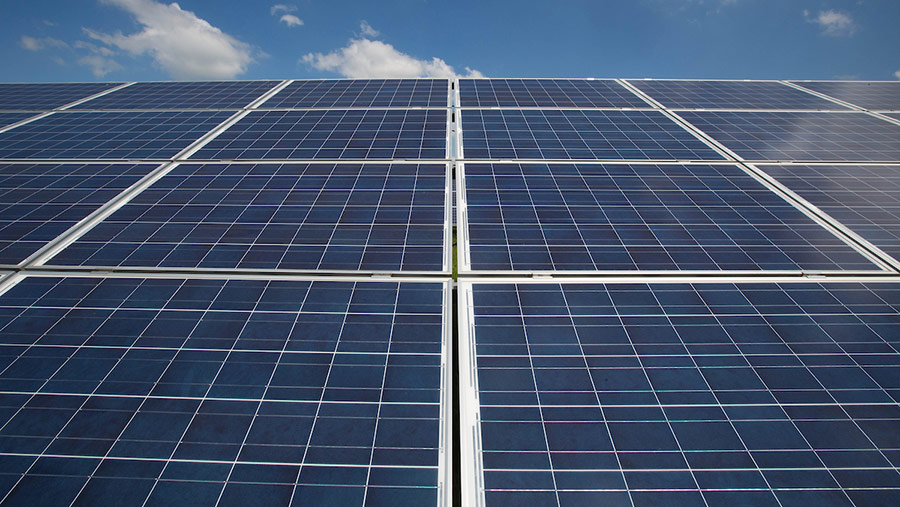Strong opposition over plans to build UK’s biggest solar farm
 © Tim Scrivener
© Tim Scrivener Plans to build the UK’s largest solar farm on 880ha of productive farmland in Lincolnshire have received fierce opposition, the developers behind the project have revealed.
The Mallard Pass Solar Farm proposal covers eight times the area of the UK’s current biggest solar farm, the 101ha Shotwick Solar Park in Flintshire.
Joint developers Windel Energy and Canadian Solar have submitted an environment impact assessment scoping report to England’s Planning Inspectorate, which describes how the project may affect the local environment.
See also: Plans for UK’s largest solar farm threaten food production
A project community newsletter has been published and posted to about 13,000 properties located near the proposed 350MW solar farm, which would cover farmland across the Rutland and Stamford border and generate enough power for about 92,000 homes.
Furthermore, responses to frequently asked questions following the stage-one public consultation have also been published on the Mallard Pass Solar Farm website.
‘High level of opposition’
Sarah Price, planning lead, said: “We received more than 900 responses to our stage-one proposals. This feedback has helped our team to improve our understanding of the local area and the aspects of Mallard Pass that local communities consider most important for us to prioritise as we further develop our proposals.
“We acknowledge there was a high level of initial opposition to our early proposals for Mallard Pass Solar Farm from those who responded.
“This feedback is important as we need to understand the basis for those concerns and to look at how they can be addressed as we refine our proposals.”
Ms Price added that their focus was on providing “accurate and honest information” on how the solar farm “can generate low-carbon energy whilst minimising impacts on the local environment and surrounding communities”.
Alicia Kearns, Conservative MP for Rutland and Melton, recently met Defra secretary George Eustice to voice her concerns about the solar plant proposal, which would cover an areas the size of 1,400 football pitches.
Following a visit to the proposed site with campaigners earlier this month, Ms Kearns described the plans as “monstrous” and warned the solar farm would destroy prime biodiverse agricultural land.
More food imports
“Our fields grow the crops that feed our nation, and the proposed solar plant would be built on good and very good agricultural land – which is a precious national resource,” Ms Kearns said in a statement.
“If the proposed solar plant were built, we would need to import the crops that are currently grown there. The extra carbon cost from importing food will counterbalance any environmental benefit provided by the solar power.
“Mallard Pass would only produce energy for 40 years, after which time the panels would have to be disposed of, which would also contribute to pollution.”
Campaign group the Mallard Pass Action Group has posted a virtual flyover showing the scale of the proposed solar site on YouTube.
Meanwhile, more than 4,000 people have now signed a petition urging the UK government to produce a national regulatory framework to avoid losing a critical mass of productive agricultural land to solar.
